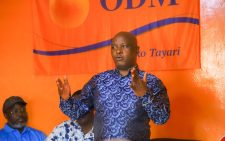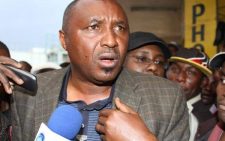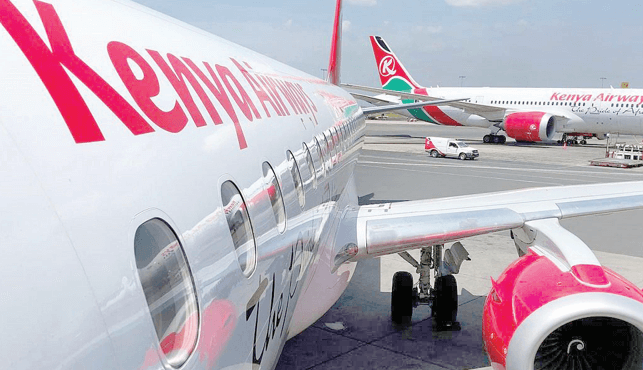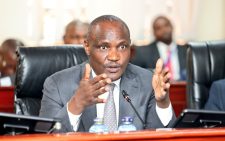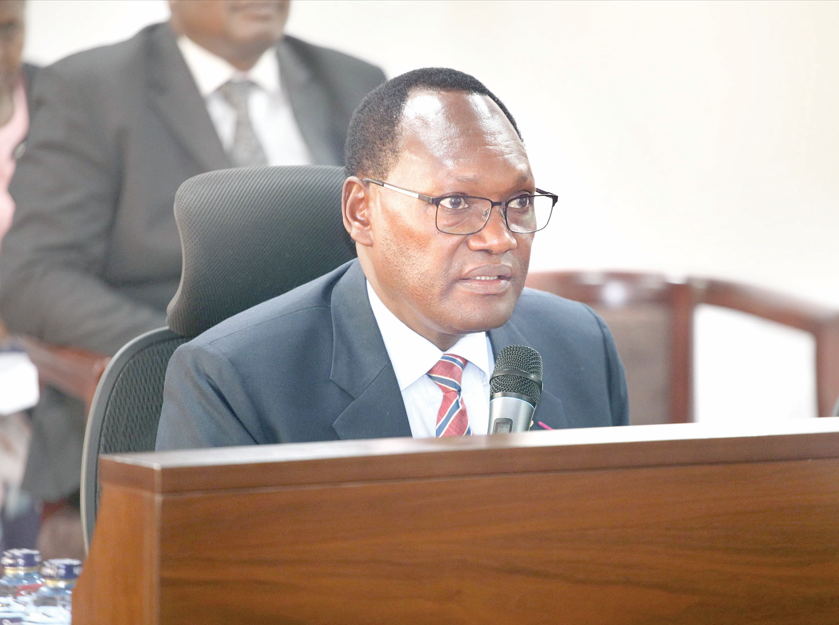Boeing names new CEO after losses more than triple

Boeing named a new CEO Wednesday after reporting a core operating loss of $1.4 billion in the second quarter — more than triple the loss from a year ago — as increased scrutiny of the safety and quality of its planes kept the troubled company from making enough aircraft to return to profitability.
Boeing announced Robert “Kelly” Ortberg, former CEO of supplier Rockwell Collins, will be its new CEO, effective August 8, replacing retiring Boeing CEO Dave Calhoun, who has been under fire for the company’s problems.
“I’m extremely honoured and humbled to join this iconic company,” said Ortberg in a statement from the company. “Boeing has a tremendous and rich history as a leader and pioneer in our industry, and I’m committed to working together with the more than 170,000 dedicated employees of the company to continue that tradition, with safety and quality at the forefront.”
Ortberg, who noted “there is much work to be done” at Boeing, has a background that could be encouraging to some staff who have criticized Boeing’s management for having too much of an emphasis on finance rather than engineering quality. Ortberg earned his college degree in mechanical engineering.
But Ortberg’s appointment doesn’t necessarily guarantee the right decisions will be made by the company’s new leadership. While Calhoun’s background is in finance, his predecessor, Dennis Muilenburg, who was CEO at Boeing at the time of the development of the troubled 737 Max jet and the two fatal crashes of the plane that led to its 20-month grounding and five years of financial losses, also had an engineering background.
Boeing CEO background
Ortberg started work in the aviation industry in 1983 as an engineer at Texas Instruments and then joined Rockwell Collins in 1987 as a program manager. He became CEO of Rockwell Collins in 2013 and retired from the company in 2021.
“Kelly is an experienced leader who is deeply respected in the aerospace industry, with a well-earned reputation for building strong teams and running complex engineering and manufacturing companies,” said Boeing Chairman Steven Mollenkopf in a statement. “We look forward to working with him as he leads Boeing through this consequential period in its long history.”
Rockwell Collins provides avionics, the electrical systems used on aircraft, and information technology used in the aerospace industry. It was purchased by United Technologies in 2018 and now operates as Collins Aerospace. Ortberg stayed with the company for three years as it was integrated into United Technologies, and then he retired.
Even one of Boeing’s harshest critics found hope in the appointment of Ortberg.
“The arrival of a new CEO at Boeing could not have happened at a more crucial and necessary time for the safety of the traveling public around the world,” said Robert Clifford, attorney for the families of 737 Max crash victims. He said that under Muilenberg, Calhoun, and Boeing’s “do nothing” board, the company has been in a “nosedive.”
“While this man is an industry insider, he comes from outside Boeing and, on the face of it, has a well-regarded reputation in the industry,” Clifford added. “Maybe he can bring the company back to the stature it once held before it criminally and preventively killed 346 people.”
Serious problems to solve
Ortberg will have his hands full fixing the problems at Boeing, which has not posted a profitable year since 2019. Since then, its core operating losses totalled $33.3 billion, including the loss announced Wednesday. That loss was far larger than forecast by analysts. Boeing will have difficulty returning to profitability until it can convince regulators that it has fixed problems with the safety and quality of its jets.
The company has admitted that two 737 Max crashes in October 2018 and March 2019 that killed a total of 346 people were the result of a design flaw. The crashes and the time it took to fix the design cost the company more than $20 billion.
It recently agreed to plead guilty to charges that its employees defrauded the Federal Aviation Administration during the original certification process for the 737 Max. As part of the guilty plea, Boeing agreed to operate under the supervision of a court-appointed monitor.
The company has come under renewed scrutiny after a 737 Max plane’s door plug blew off shortly after takeoff in January. More than a dozen whistleblowers have told Congressional investigators about bad practices at Boeing, including the use of parts that did not meet standards. Many said Boeing retaliated against employees who complained about safety practices.
The company has agreed to an FAA demand to curb production of the 737 Max until the regulator is satisfied it has fixed its safety and quality issues. But that will keep the losses building at Boeing as it can’t make money at its current level of production.
Most immediate problem
The most immediate problem for Ortberg is a potential strike in September by about 36,000 hourly workers at its commercial airplane plants in Washington state. Calhoun told investors that the company knows the Machinists union, which represents those workers, will have a “big ask” on wages, but that the company is willing to reward its workers and is doing everything it can to avoid a strike.
Ortberg’s selection was also generally praised by Boeing analysts.
“One person cannot turn around a company, but Kelly should be able to cast a wider net for talent than a Boeing insider could,” said Ron Epstein, aerospace analyst for Bank of America.
“Demand for commercial aircraft remains strong, and in a duopoly, Boing should be a beneficiary, in our view,” Epstein added. “We do note that Ortberg is walking into a Boeing with a potential production strike in September, a defence business that is limping along, and commercial business that has lost the trust of regulators and the public. Boeing overall has a long road ahead if the underperformance in this quarter is an indicator of what’s to come.”
Boeing has changed a number of top executives so far this year and Calhoun said he doesn’t think further changes in leadership are likely under Ortberg.
“He knows full well that we’re in a recovery mode,” Calhoun told investors. “I don’t think this is intended to be a large personnel overhaul.”
Boeing’s problems go beyond the 737 Max issues. The company also has problems with its defence business, which resulted in $913 million in losses on its defence, space and security unit, nearly double the $527 million it lost there a year earlier.
Its Starliner spaceship made its first crewed flight in the quarter but developed problems after docking at the International Space Station, leaving its two astronauts stuck at the ISS with no date yet known for their return.
Boeing also reported it had additional losses in its program to deliver two new 747 jets that will be used as the new Air Force One planes by the president. That contract has already cost Boeing more than $2 billion going into the quarter. It said Wednesday that increased engineering costs for that contract and for the Starliner contributed to Boeing’s increased losses.
Shares of Boeing (BA) initially fell in premarket trading on the financial results, then bounced back on news moments later that Ortberg had been tapped as CEO. Shares were up more than 1% at the US market open. But shares are down 28% year to date through Tuesday’s market close.
For these and more credible stories, join our revamped Telegram and WhatsApp channels.
Telegram: https://t.me/peopledailydigital
WhatsApp: https://whatsapp.com/channel/0029Va698juDOQIToHyu1p2z



